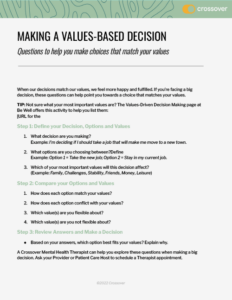LOOKING FOR WAYS TO TAKE CARE OF YOUR MENTAL HEALTH? WE’RE HERE TO HELP.
1
Explore this module for in-depth info and useful videos.
2
Stick with the most helpful exercises.
3
Want more help? Start a conversation with your care team.
EXPERT GUIDANCE PROVIDED BY:
-
Josh White, PsyDPsychologistJosh is deeply committed to helping members create more flexible and meaningful perspectives on personal and social wellness. He has over 10 years of experience with evidence-based psychological treatments, with an emphasis on treating adults with depression, anxiety, trauma, and chronic pain.
-
Nicole Thalheimer, PsyDPsychologistNicole has been passionate about helping folks her entire life. Be it volunteering, mentoring, or through her role as a clinical psychologist, she enjoys working with, connecting to, and building rapport with people.
-
Jeff Yocom, LCSWMental Health (LCSW)Jeff is a licensed clinical social worker and a trained eye movement desensitization and reprocessing (EMDR) therapist. He feels there is nothing better than ending a day knowing you have made a positive difference in someone's life.





